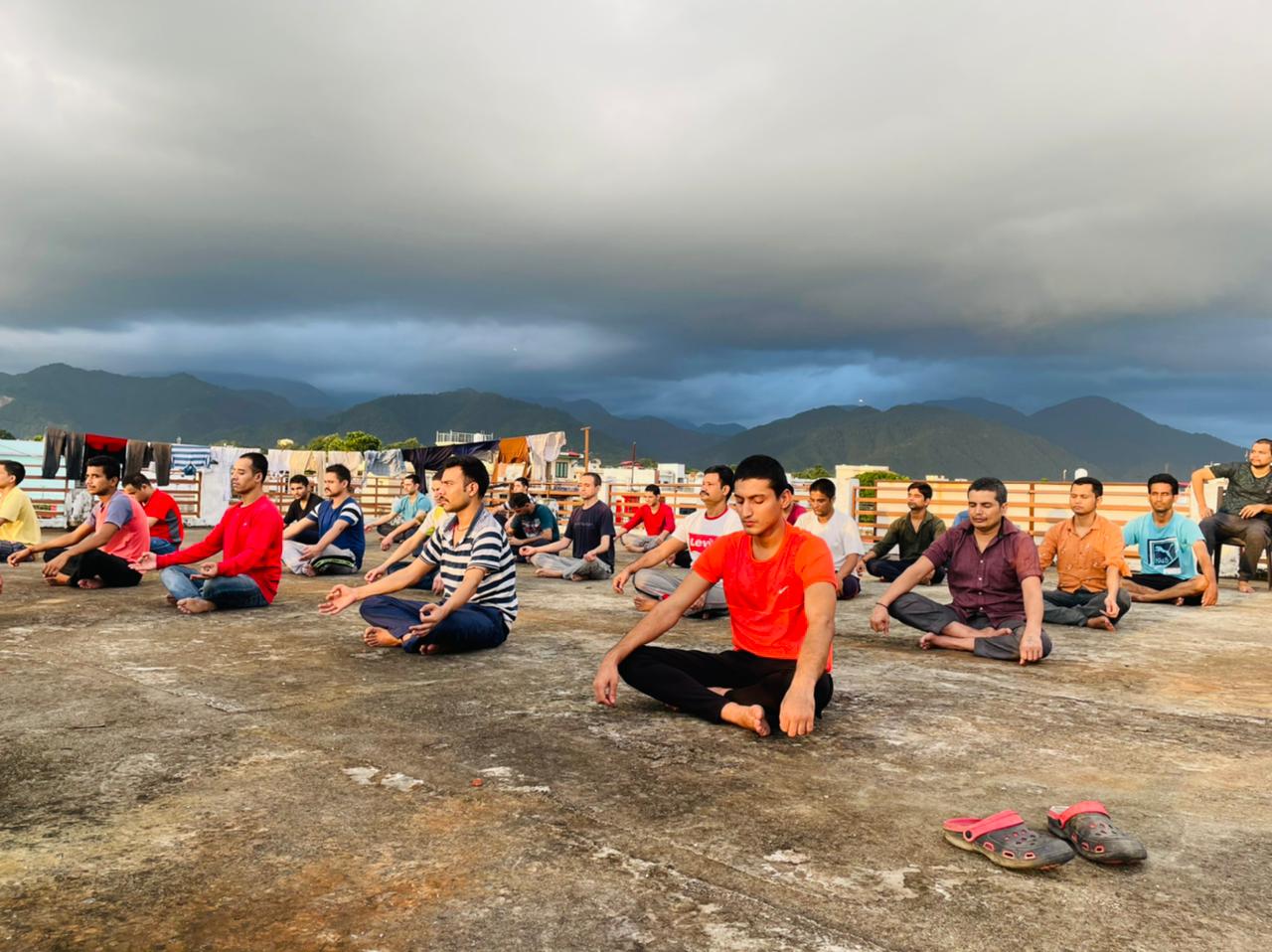A Day at Rehab Centre: Routine, Care, and Recovery

A structured routine at a rehabilitation facility plays a pivotal role in maintaining sobriety and emotional well-being. Understanding what a day at rehab centre looks like helps prepare individuals for the physical, mental, and emotional journey ahead. At Prayas Sewa Samiti, we’ve developed optimised daily schedules that support recovery through healing, community, and therapy.
In rehabilitation, every hour is designed to rebuild habits, restore trust, and develop skills for long-term sobriety. From the first wake-up call to bedtime reflections, each moment in a day at rehab centre serves a purpose—ensuring progress backed by professional guidance.
For many, stepping into a rehab centre can feel intimidating. But when you know what a day at rehab centre entails—structured sessions, nourishment, rest, and reflection—it becomes less daunting. This clarity helps individuals focus on healing rather than fear. Let’s walk through a typical daily routine at Prayas Sewa Samiti, where transformation begins one day at a time.
A Day In Prayas Sewa Samiti Rehab
1. Early Morning: Wake-Up & Reflection
A day at rehab centre begins early—usually around 6:00 AM—with soft wake-up calls. After a freshen-up, individuals gather for a brief group reflection or spiritual session. This helps inculcate mindfulness and set intentions, laying a positive foundation for the day.
Morning Routine Breakdown:
-
6:00‑6:30 AM: Wake up & personal hygiene
-
6:30‑7:00 AM: Guided meditation, prayer, or mindfulness
-
7:00‑7:30 AM: Light yoga or stretching to energise mind and body
By starting the day at rehab centre with calm focus, participants strengthen their emotional resilience and readiness for the therapeutic tasks ahead.
2. Nourishing Breakfast & Nutrition Education
After morning routines, a freshly prepared, nutritious breakfast follows—typically porridge, eggs, fruit, and green tea. This is paired with a short session on dietary education, emphasising the importance of wellness in recovery.
Nutrition Segment Highlights:
Understanding nutrition’s role in physical and mental health
-
Identifying triggers through food
-
Learning to incorporate balanced meals post-rehab
These discussions reinforce how a wholesome diet supports emotional stability, an essential part of a well-rounded day at rehab centre.
3. Morning Therapy & Counselling Sessions
By mid-morning, individual therapy sessions begin. These private conversations with psychologists, psychiatrists, or counsellors explore addiction roots, cognitive habits, emotional challenges, and coping strategies, core to the mental healing process.
Parallel group therapy sessions allow peer sharing under professional guidance. Such settings build trust, accountability, empathy, and communal belonging, offering real-world insights into managing recovery and resisting relapse.
4. Midday Break & Recreational Activities
Around noon, participants embrace free time. They may engage in music sessions, art therapy, journaling, or outdoor walks—each contributing to personal expression and stress relief.
These activities contextualise how a day at rehab centre includes both structured therapy and creative pauses, offering mental rest while encouraging self-discovery.

5. Lunch & Midday Reflection
Lunch is a balanced affair—often including grilled veggies, lean protein, brown rice, and hydration. Post-meal reflection or group check-ins help highlight experiences, reaffirm solidarity, and ensure concerns are addressed, reinforcing the therapeutic day at rehab centre ethos.
6. Skill-Building Workshops
In the afternoon, rehab participants engage in practical workshops on:
-
Communication and relapse prevention
-
Managing stress & life skills
-
Financial planning and rebuilding families
-
Vocational training and career readiness
These workshops ensure that a day at rehab centre equips individuals with holistic survival tools.
7. Physical Fitness & Outdoor Time
Physical activity—whether light exercise, sports, or nature walks—is incorporated daily. These sessions release positive endorphins, reduce anxiety, and promote healthy routines.
Whether it’s a yoga class, group sports, or solo jogging, exercise forms a vital link in the chain of a balanced day at rehab centre.
8. Evening Group Therapy & Skill Application
After evening prayers and refreshments, many facilities host another round of group therapy. Topics revolve around applying concepts learned, processing emotions, and sharing daily achievements.
Role-playing, peer mentoring, and reflection exercises enrich the second half of the day at rehab centre—ensuring continuous emotional engagement.
9. Dinner & Informal Bonding
Dinner is often a shared meal—a wholesome, family-style experience. Meals foster connection, restore routine, and support cultural or personal preferences (with vegetarian or low-sugar options).
Informal time during or after dinner allows group bonding, storytelling, and community building—essential for long-term recovery.

10. Night Reflection & Preparation for Tomorrow
Early evening is reserved for individual journaling or counsellor-led reflection sessions. Participants log their progress—challenges faced, coping successes, emotional insights—a vital habit in a day at rehab centre.
Daily goals are set for the next day—whether abstaining from relapse triggers, practising a new coping skill, or reconnecting with family calls.
Finally, bedtime arrives between 9:00–10:00 PM—usually with relaxing music or guided sleep meditation, encouraging restful nights vital for emotional healing.
11. Why Routine Matters in Rehab
A clearly structured day at rehab centre helps:
-
Reprogram unhealthy habits
-
Create safe, predictable environments
-
Build trust and accountability in communities
-
Reduce decision fatigue and impulsivity
-
Reinforce emotional and physical self-care
Rehab is as much about learning patterns and responses as it is about detoxification and therapy.
12. Adapting to Individual Needs
At Prayas Sewa Samiti, the daily schedule is standardised but flexible. Personal sessions, medical care, and therapy intensity adapt to each individual’s progress. Scheduled breaks cater to rest, and 1-on-1 sessions provide tailored attention, showing that a day at rehab centre can match both structure and individuality.
Conclusion
At Prayas Sewa Samiti, we believe that recovery is not a one-size-fits-all journey. Every individual who walks through our doors is given personalised attention, holistic care, and a safe, non-judgmental environment. Our focus on emotional healing, physical wellness, and mental strength makes each day count in the journey toward sobriety, with government minimum standards of service. It is not just about treatment—it’s about building a life worth living.
If you’re searching for the best de-addiction centre in Dehradun, look no further than Prayas Sewa Samiti. With years of trusted service and a compassionate team of experts, we are committed to helping individuals and families heal, one day at a time.